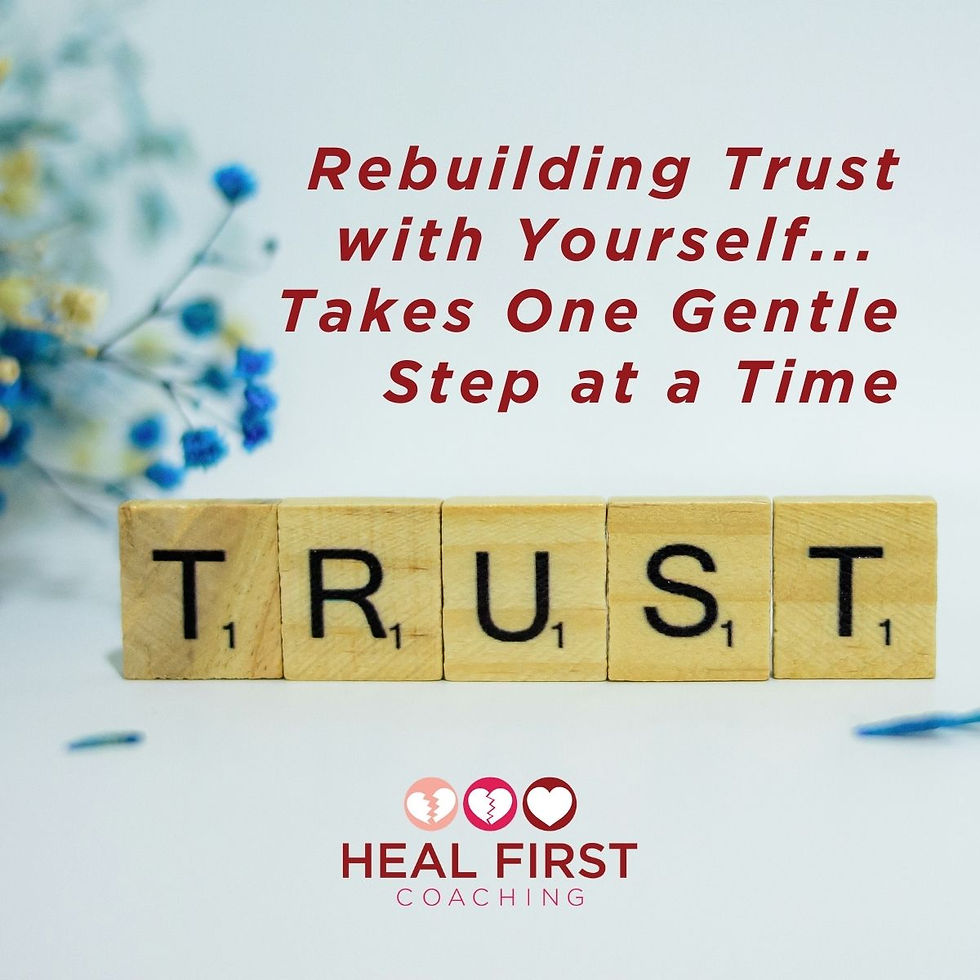Steps to Heal Emotionally After Divorce
- Samantha Tishner

- Jul 26, 2024
- 4 min read

Imagine standing in the wake of a storm, where everything familiar has been uprooted and scattered. You might feel a whirlwind of emotions—anger, sadness, confusion—as you navigate through this turbulent period of your life. It’s essential to acknowledge these feelings, as they’re the first steps towards healing. But what comes next? How do you begin to rebuild not just your life, but also your sense of self? Understanding the process can provide clarity and direction, leading you toward a more resilient future.
Key Takeaways
Acknowledge and process your emotions, allowing yourself to feel sadness and anger for effective healing.
Prioritize self-care by engaging in regular physical activity, maintaining a balanced diet, and establishing stable routines.
Build a support network by sharing feelings with friends and family, and consider joining support groups for shared experiences.
Set personal goals and explore new hobbies to redirect your energy towards personal growth and renewed purpose.
Incorporate mindfulness practices, like meditation and journaling, to manage anxiety and track your emotional progress.
Acknowledge Your Emotions
Acknowledging your emotions is essential for steering through the complex grief that comes with divorce, as it helps you understand your true feelings and needs during this challenging time.
It’s normal to experience negative emotions like anger, sadness, and guilt. Ignoring them only hinders the healing process. Allow yourself to grieve, and take time to reflect on your emotions; this is crucial for acceptance.
Healthy coping mechanisms, such as joining a support group, can provide the community you need. If you have children, talk to them about your feelings, as open communication fosters understanding.
Embrace the Healing Process
Embracing the healing process requires you to fully confront and navigate the emotional turmoil that accompanies the end of a significant relationship. It’s essential to allow yourself to feel the emotional pain, recognizing that sadness, anger, and confusion are normal reactions. This time of reflection is vital; acceptance of your feelings can help you heal.
Prioritize self-care practices—regular exercise, a balanced diet, and mindfulness techniques—to enhance your emotional resilience. As you take care of yourself, set personal goals that redirect your energy toward personal growth. This shift not only empowers you but also fosters a sense of purpose.
Build a Support Network
Building a support network is essential for steering through the emotional upheaval of divorce, as connecting with friends, family, and others who understand your journey can greatly ease feelings of isolation.
Relying on your support network can help you share your feelings and experiences, reducing shame and promoting healthier emotional recovery. Schedule regular meetups with loved ones to create stability during this difficult experience.
Additionally, consider joining support groups or community organizations to meet individuals who share similar stories. Engaging in new hobbies can also serve as a distraction and introduce you to new friends, further strengthening your support network.
Practice Self-Care Strategies
Practicing self-care strategies is essential for nurturing your emotional well-being and fostering resilience during the challenging journey of healing after divorce.
Prioritize regular physical activity, like walking or yoga, to help reduce stress and boost your mood. A balanced diet rich in fruits, vegetables, and whole grains supports mental health, enhancing your emotional recovery.
Establishing a consistent routine for sleep and daily activities creates stability, which is vital post-divorce. Incorporate mindfulness practices, such as meditation and deep breathing, to manage anxiety and emotional distress effectively.
Additionally, journaling can be a powerful tool for expressing your feelings, reflecting on experiences, and tracking your progress throughout this healing journey.
Focus on Personal Growth
Focusing on personal growth after divorce often leads to profound self-discovery and renewed purpose in life.
To heal effectively, take the time to explore new hobbies or engage in journaling, as these activities enhance emotional well-being.
Set personal goals and create a vision for your future; this process provides direction during your healing journey.
Spend more time volunteering or participating in community activities to foster connections and a sense of purpose.
Joining clubs or classes related to your interests not only builds new skills but also helps you make lasting friendships, essential for emotional support.
Embrace this opportunity for personal reinvention, allowing yourself to redefine your identity and discover new passions that enrich your life.
Frequently Asked Questions
How Do I Recover From Divorce Emotionally?
Recovering emotionally from divorce takes time and self-compassion. Acknowledge your feelings, engage in healthy coping strategies, and connect with supportive friends or groups. Remember, healing isn’t linear, so be patient with yourself during this journey.
How to Detach After Divorce?
To detach after divorce, acknowledge your feelings and set boundaries with your ex. Engage in self-discovery activities and practice mindfulness. Seeking therapy can also help you navigate this emotional journey and foster personal growth.
How to Start a New Life After Divorce?
Starting a new life after divorce means embracing change. You’ll need to accept your feelings, set achievable goals, explore new interests, prioritize self-care, and lean on supportive relationships to help you navigate this journey.
Does the Pain of Divorce Ever Go Away?
The pain of divorce can lessen over time, though it might never fully disappear. By allowing yourself to grieve and embracing healthy coping strategies, you’ll likely find it becomes more manageable as you heal.
Conclusion
As you navigate the emotional consequences of divorce, remember that healing takes time and effort.
For instance, consider Sarah, who channeled her sadness into painting and joined a local art class.
This not only helped her express her feelings but also connected her with supportive friends.
By acknowledging your emotions, seeking support, and focusing on personal growth, you can emerge stronger and more fulfilled.
Embrace each step of your journey; every small victory counts toward your healing.




Comments